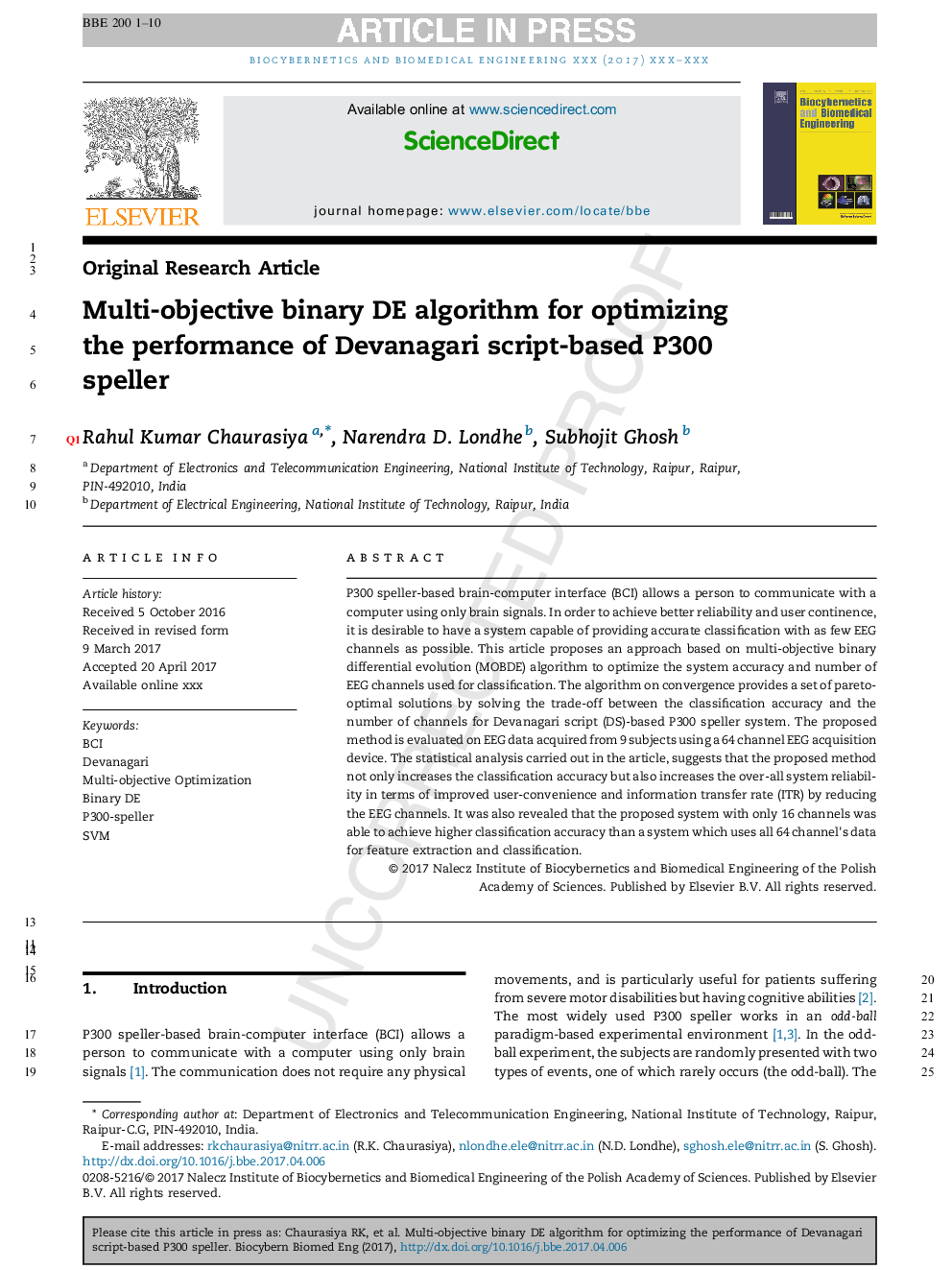| Article ID | Journal | Published Year | Pages | File Type |
|---|---|---|---|---|
| 6484212 | Biocybernetics and Biomedical Engineering | 2017 | 10 Pages |
Abstract
P300 speller-based brain-computer interface (BCI) allows a person to communicate with a computer using only brain signals. In order to achieve better reliability and user continence, it is desirable to have a system capable of providing accurate classification with as few EEG channels as possible. This article proposes an approach based on multi-objective binary differential evolution (MOBDE) algorithm to optimize the system accuracy and number of EEG channels used for classification. The algorithm on convergence provides a set of pareto-optimal solutions by solving the trade-off between the classification accuracy and the number of channels for Devanagari script (DS)-based P300 speller system. The proposed method is evaluated on EEG data acquired from 9 subjects using a 64 channel EEG acquisition device. The statistical analysis carried out in the article, suggests that the proposed method not only increases the classification accuracy but also increases the over-all system reliability in terms of improved user-convenience and information transfer rate (ITR) by reducing the EEG channels. It was also revealed that the proposed system with only 16 channels was able to achieve higher classification accuracy than a system which uses all 64 channel's data for feature extraction and classification.
Related Topics
Physical Sciences and Engineering
Chemical Engineering
Bioengineering
Authors
Rahul Kumar Chaurasiya, Narendra D. Londhe, Subhojit Ghosh,
